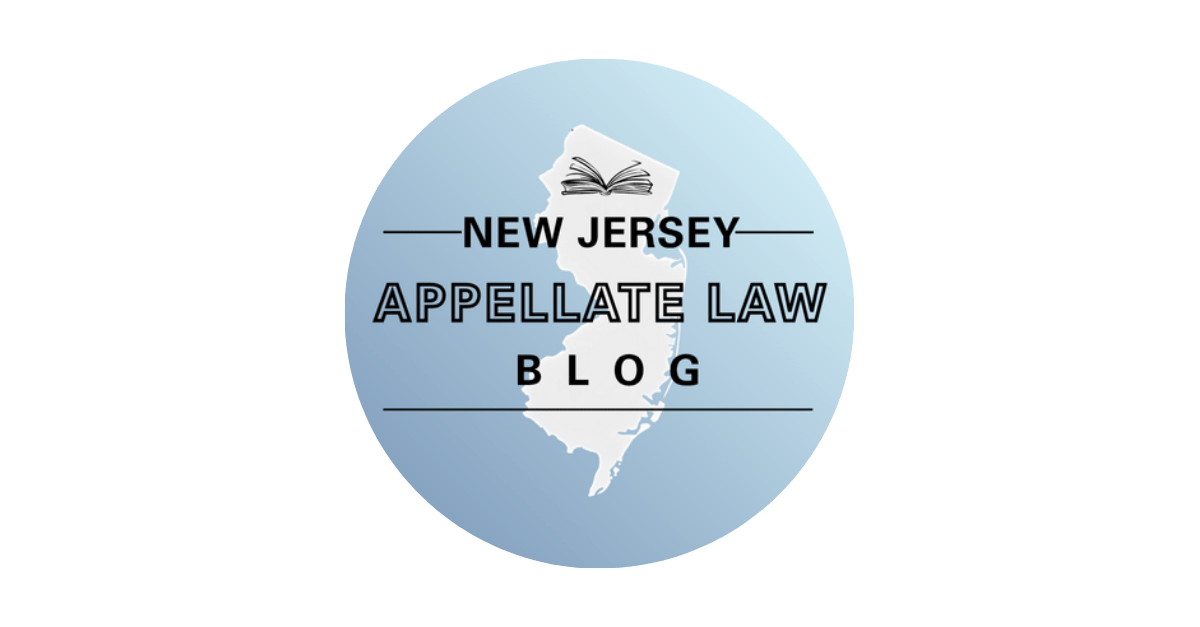American Civil Liberties Union of New Jersey v. County Prosecutors Association of New Jersey, 257 N.J. 87 (2024). The ACLU of New Jersey sought five categories of records from defendant (“CPANJ”) under the Open Public Records Act, N.J.S.A. N.J.S.A. 47:1A-1 to -13 (“OPRA”), and the common law right of access. As summarized here, CPANJ moved to dismiss for failure to state a claim, on the grounds that CPANJ is not a “public agency” covered by OPRA, and that CPANJ was not a public entity subject to the common law right of access either. The Appellate Division affirmed in an opinion reported at 474 N.J. Super. 243 (App. Div. 2022).
Yesterday, by a 5-2 vote, the Supreme Court affirmed, applying de novo review. Justice Patterson wrote the majority opinion, in which Chief Justice Rabner and Justices Solomon, Pierre-Louis, and Fasciale joined. Justice Wainer Apter dissented, joined by Justice Noriega.
CPANJ is a nonprofit association that comprises the 21 county prosecutors. Among the further facts about CPANJ that the ACLU alleged, as recounted by the majority, “the ACLU alleged in its complaint that the Office of the Attorney General views CPANJ as a ‘partner in implementing statewide criminal justice policy.’ The ACLU noted that pursuant to N.J.S.A. 52:17B-70(b), CPANJ’s representative is a member of the Department of Law and Public Safety Police Training Commission, and that under N.J.S.A. 30:4-123.47a, CPANJ’s representative is a member of the Parole Advisory Board. The ACLU asserted that CPANJ ‘regularly sends copies of its meeting minutes and agendas’ to the Office of the Attorney General. The ACLU further alleged in its complaint that the county prosecutors who comprise the membership of CPANJ use the resources of their offices to conduct CPANJ business, including ‘the development of agendas, the coordination of meetings and dinners, and the administration of [CPANJ’s] scholarship program.’ The ACLU stated that CPANJ participates as amicus curiae in trial and appellate matters and that it has filed appearances in court. The ACLU asserted that CPANJ uses county prosecutors’ resources when it participates in court proceedings as amicus curiae.”
But the majority found that the ACLU had not adequately alleged that CPANJ was a public agency. Because the ACLU contended that “CPANJ is an instrumentality of the county prosecutors, ‘state actors’ who together comprise a ‘combination of political subdivisions’ under N.J.S.A. 47:1A-1.1.[, …. ] the core question in this appeal is whether a county prosecutor constitutes a ‘political subdivision’ for purposes of OPRA.” The majority answered that question in the negative. A county prosecutor is “a constitutional officer who serves by virtue of gubernatorial nomination and Senate confirmation,” and that service is to both the county and the State of New Jersey.
“In short, the county prosecutor is not the alter ego of the county itself, and does not constitute a ‘political subdivision’ as that term is used in N.J.S.A. 47:1A-1.1,” so that the ACLU’s “reliance on CPANJ’s law enforcement functions and relationship with the Attorney General is misplaced.” CPANJ, the majority concluded, “has no constitutional or statutory powers of any kind, and it is not authorized to investigate, arrest, or prosecute anyone. It constitutes an organization in which the county prosecutors are members. It is not the alter ego of the prosecutors themselves.” Thus, CPANJ was not a public agency for OPRA purposes.
For similar reasons, the majority upheld the dismissal of the ACLU’s common law right of access claim. CPANJ was a private entity that did not even have an office. OPRA does not require a private entry to provide documents as a public entity might be required to do. The majority did say, however, that the ACLU could serve OPRA requests and/or demands under the common law right of access seeking the same materials that the ACLU sought in this case.
The dissenters believed that, especially under the liberal standards of Rule 4:6-2(e) that lean toward denying dismissal for failure to state a claim, and the principle that OPRA is to be construed “in favor of the public’s right of access, the “facts at least suggest that CPANJ is simply another name for the county prosecutors themselves and that it therefore meets the definition of ‘public agency’ in N.J.S.A. 47:1A-1.1 in the same way that the county prosecutors’ offices themselves do.”
As to the common law right of access, the dissenters contended that “[b]ecause no private citizens are members of CPANJ, every document recorded, generated, or produced by CPANJ is recorded, generated, or produced by a public official,” and all of CPANJ’s documents are held in prosecutors’ offices (again, CPANJ has no office of its own). Those offices are “public offices under the common law. Any CPANJ documents stored at the county prosecutors’ offices are by definition common law public records” to which the ACLU should have been entitled. But the dissenters did not carry the day, and the Court affirmed the decisions below that dismissed the ACLU’s case.

